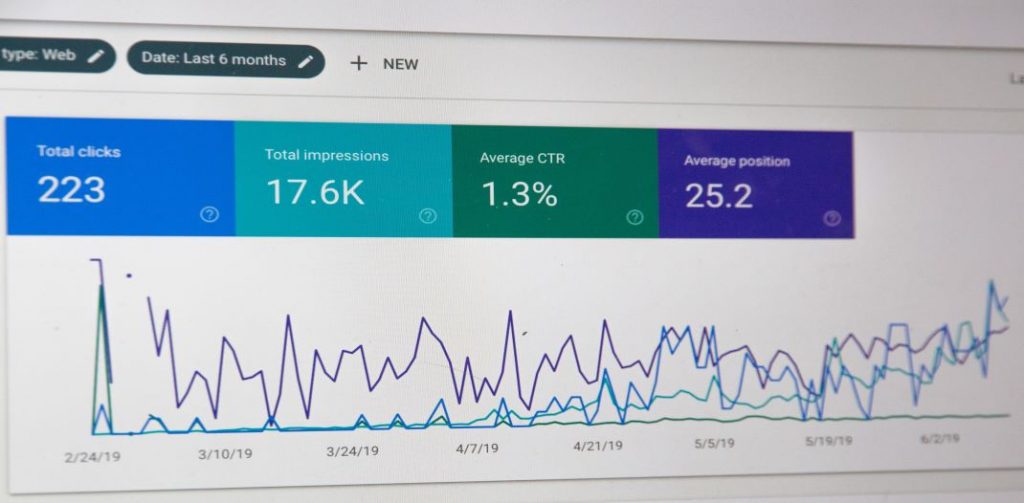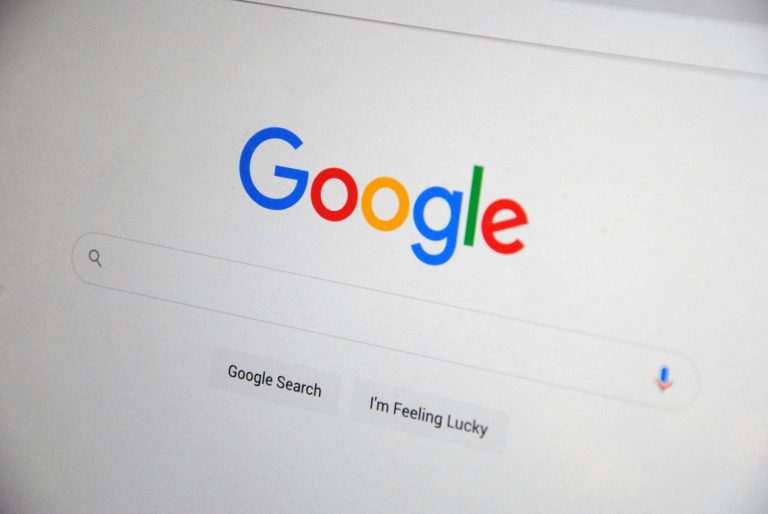Eager to improve the marketing ROI (Return of Investment) for your UK business?
Regardless of whether you want to set an achievable target for your newly-formed marketing department or you’re unsure whether you’re getting good value for your money from your marketing agency, we can help.
With more than a decade of experience in the digital marketing sector, the knowledgeable team at Aqueous Digital has helped businesses of all shapes and sizes to achieve their marketing goals.
To support your understanding of ROI in marketing, our helpful team of digital marketing professionals has assembled this complete guide.
Below, we answer some of the most common questions about marketing ROI, including ‘what is a good rate of return on investments’, ‘which factors can impact your marketing ROI’ and ‘which types of marketing drive the highest returns’.
What is the ROI in marketing?
The ROI in marketing works in exactly the same way as the ROI for your business overall – as a profitability metric.
This metric is calculated by taking your net return and dividing it by the cost of the investment.
This figure is then multiplied by 100 to express it as a percentage.
By calculating the ROI for your company, you can determine whether your business is profitable.
For example, if you’ve spent £10K setting up your company, but your net return is £50K, you’ll be generating a 500 per cent ROI.
Similarly, you can use the same principle to find out how effective your marketing efforts have been.
If your marketing initiatives have directly increased sales and other business to a higher value than they cost you to execute, then you’ll be making a return on your marketing investment.
As a result, calculating your ROI in marketing is essential in ensuring your marketing strategy is having a positive effect on the success of your business.
Even if you’ve benefited from a positive marketing ROI in the past few years, a drop in your ROI could indicate that a change in approach is required.
A reduction in your marketing ROI could lead to a subsequent reduction in your budget if the owner of the business can’t see the value in your efforts.
Instead of funding marketing, they could be more likely to invest in other, more profitable areas of the business, like the sales or operations departments.
Regularly monitoring your ROI, and having a good understanding of what kind of returns you should be aiming for, is therefore crucial to ensuring your marketing department is properly funded and your hard-earned money is being spent effectively.
What is a good ROI in marketing?
So, what is a good Return on Investment in the marketing industry?
There are two answers to this question; one is short and straightforward, while the other is a little more complex. Let’s explore both, below!
Put simply, a good marketing ROI is typically a 5:1 ratio (or 500 per cent return on your investment).
This means you generate £5 for every £1 that you spend. However, this is considered to be a very strong ROI, with a marketing ROI ratio of 10:1 being particularly exceptional.
Looking for a more detailed answer?
As every organisation is different, aiming for a marketing ROI of 500 per cent may not be realistic for your business.
Instead, you’ll need to consider the costs, margins, and other factors that are unique to the way you operate or the industry as a whole.
What is the ideal marketing ROI?
Crucially, instead of aiming for a particular marketing ROI, it’s more important to ensure that you’re not losing money by investing more into your marketing activities than you can generate.
A marketing ROI ratio of anything below 2:1 means you won’t be making any profit from your marketing activities.
When the additional costs of producing and selling the product or service are taken into account, a 2:1 marketing ROI is typically insufficient for many industries.
Which factors can impact your marketing ROI?
Concerned that your marketing efforts aren’t generating the returns you’re looking for?
There are many factors that could be impacting the success or accuracy of your marketing initiatives.
Simply carry on reading to learn more about the various factors that could be negatively affecting your marketing ROI.

A focus on short-term results
Naturally, some marketing investments may have longer-term goals in which case it could take more time for you to reach a positive ROI.
Marketing activities like building brand awareness, improving customer relationships, and driving customer retention all tend to be long-term initiatives.
If you adopt this long-term approach, then your initial marketing ROI is likely to be flat or low until the campaign starts to have an impact.
Gradually, over a period of months or years, your sales should increase as a result of your efforts and the cumulative ROI of the campaign should improve.
However, if you’re still not achieving a positive ROI several months or even years after implementing this strategy, this is a key indicator that your approach may need adjusting.
Regardless, it’s important not to expect an immediate increase in your marketing ROI for some initiatives.
Only measuring specific channels
Nowadays, it’s no secret that marketing isn’t limited to just one channel that you can quickly and easily measure.
Instead, there are online and offline marketing activities that should be utilised and measured to generate a complete and accurate picture of your marketing ROI.
This can include everything from the distribution of paper flyers and calling local businesses to publishing content on LinkedIn and sending out emails.
This results in multiple touchpoints that can encourage your audience to get in touch.
Accurate marketing ROI measurement should take all these touchpoints into consideration, providing insights into both the individual marketing campaigns and channels, as well as providing a more general overview.
Industry-specific factors
Generating a 500 per cent marketing ROI sounds great, right?
While it’s true that this is a good ROI, it’s important to take into account industry-specific factors.
For example, if you’re generating a high ROI in marketing, but it’s not as much as your competition, you’ll need to re-adjust your goal.
Unique costs and margins can make a big difference to returns, so it’s well worth doing your competitor research before devising your marketing strategy.
How to improve your marketing ROI
Eager to increase your marketing ROI?
Regardless of whether you’re a new company or have been operating for decades, there’s always room for improvement.
Discover some of our top tips to boost your marketing ROI from the helpful team of digital marketing professionals at Aqueous Digital.

Set clear goals
While making a profit is important for the success of all businesses, not all marketing campaigns are created to directly or immediately improve ROI.
Instead, your primary goal may be to simply establish your brand in your target market or improve the way your business is perceived by your audience.
Setting out clear goals for your marketing team from the outset is therefore crucial to determining how your ROI will be calculated.
Similarly, it’s always useful to identify which core metrics you want to track based on achieving your goals, such as your conversion rate, organic traffic, or leads.
You can then utilise this data to refine your approach and campaigns, thereby further improving your marketing ROI.
Determine costs and income
If you fail to account for all marketing costs, then your ROI will be inaccurate.
Alongside the cost of employing in-house marketing professionals, you’ll also need to take into account the cost of promotions, customer surveys, and agency fees when calculating your marketing ROI.
Having a clear idea of which costs should be included in your ROI calculations is essential to creating a marketing strategy that doesn’t blow the budget.
Breaking down your marketing initiatives into stages can help with determining which areas are costing the most but delivering the lowest returns.
Utilise the right tools
A wide range of online and offline activities can be used in the exciting marketing industry, but not all channels provide the same results for every business.
Instead, you’ll often need to experiment with different activities like email, social media, and content marketing.
Once you’ve identified the most effective marketing channels for your business, you can utilise them to help boost your ROI.
You can then explore marketing technology platforms that have the capability to unify core metrics from both online and offline marketing initiatives.
This can provide clearer insight into the success of individual marketing channels, while also making measuring your overall marketing ROI much easier and more accurate.
Which type of marketing has the highest ROI?
As mentioned above, not all marketing channels will deliver the same ROI results for different businesses.
However, there are a few marketing channels that are widely considered to be the most effective for driving your marketing ROI – this includes email marketing, Search Engine Optimisation (SEO), and paid media, like Pay-Per-Click (PPC) advertising.

Search Engine Optimisation
Although SEO is a longer-term marketing strategy, it can have a massive impact on your marketing ROI.
According to data from Wifitalents, 30 per cent of businesses that use SEO services said they generated an ROI of 200 per cent, while the most effective SEO strategies produce an average ROI of 275 per cent.
SEO helps improve a website’s visibility in the SERPs (search engine result pages) because it involves optimising the website’s pages for online users and search engines alike.
Whether you want more brand awareness, an increase in organic traffic, or better leads, SEO can help.
Pay-Per-Click
It’s no secret that PPC can deliver some of the most impressive returns on investment for businesses.
In fact, the average ROAS (Return on Ad Spend) for Google Ads is around 200%, meaning you receive £2 for every £1 spent.
While this is a relatively moderate figure compared to the sought-after 5:1 or 10:1 marketing ROI, these ad campaigns can be further tailored to increase their effectiveness.
Campaigns can be personalised to certain demographics based on their audience’s geographical location, age, gender, interests, and more.
Email marketing
How many emails do you receive from websites that you’ve visited or engaged with each day?
The answer for most people is tens, if not hundreds.
This is because email marketing is a critical part of almost every business in the UK.
While there are now certain limitations on email marketing practices following the introduction of the GDPR (General Data Protection Regulation), online users that do allow businesses to email them are now able to receive more tailored email campaigns.
These campaigns can include everything from abandoned basket emails to personalised discounts that are designed to encourage engagement and conversions.
According to a Statista 2021 UK marketing survey, this results in an incredibly impressive ROI – for every £1 spent on email marketing, there is a return of £38.33!
Improve your marketing ROI with Aqueous Digital
Experts in paid media, organic SEO, and reputation management for high-net-worth individuals, we adopt a results-driven approach to the digital marketing services we provide here at Aqueous Digital.
We understand the importance of KPIs and their ability to help you measure the performance of both your marketing and wider business efforts.
Regardless of whether you want to increase conversions, boost organic traffic to your website, or drive brand awareness, we’ll work you to help you achieve your business goals.
No matter where your business is located in the UK, which industry you operate in, the size of your company, or how long you’ve been running, we’ll utilise data-driven insights and targeted content strategies to increase your marketing ROI as much as possible.
If you’d like to learn more about our digital marketing services or are keen to arrange your no-obligation, completely free consultation, please don’t hesitate to contact our team today.
To get in touch, you can either give us a call on 0800 285 1424, email your enquiry to at hello@aqueous-digital.co.uk, or send us a message to any one of our social media accounts.





